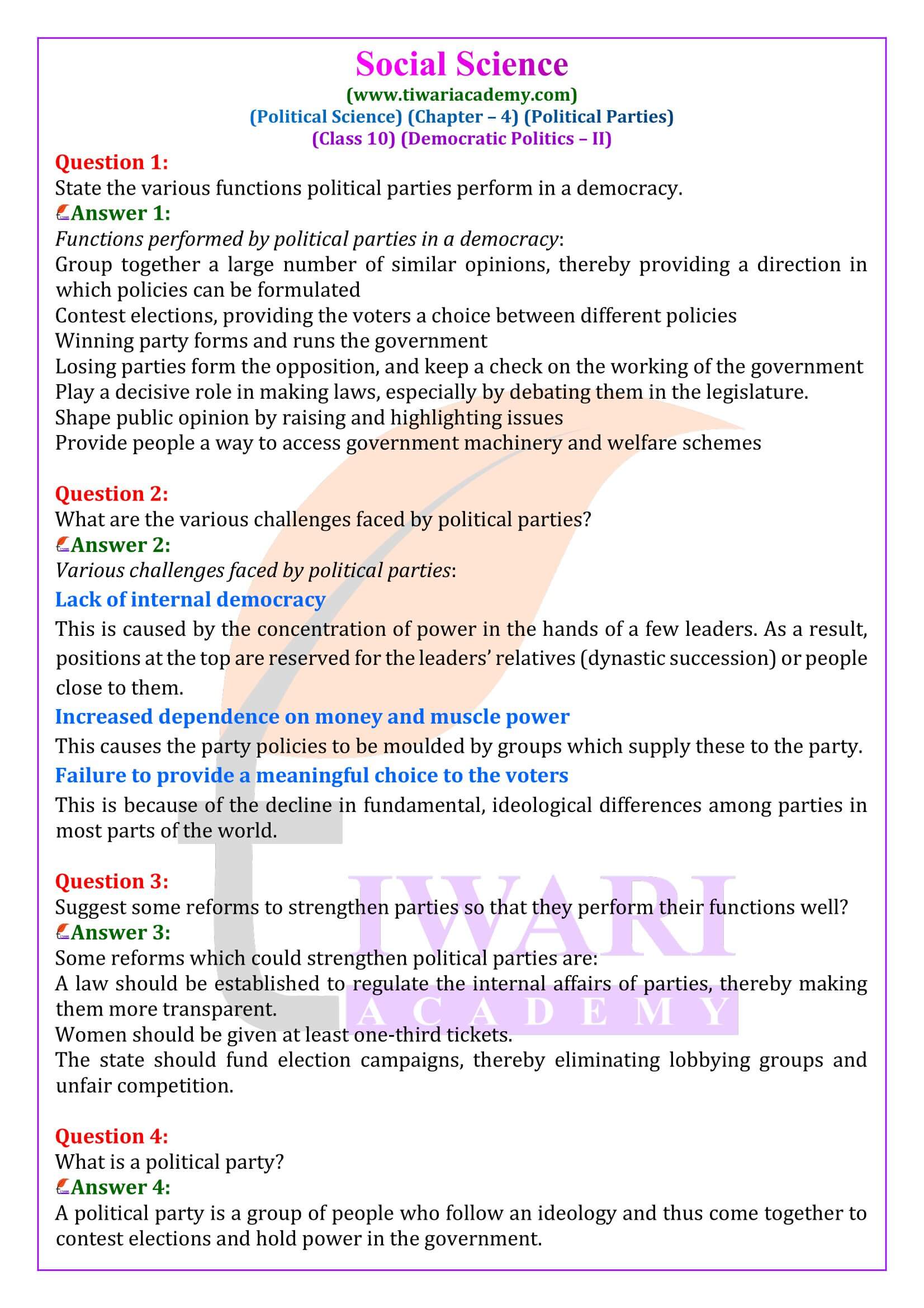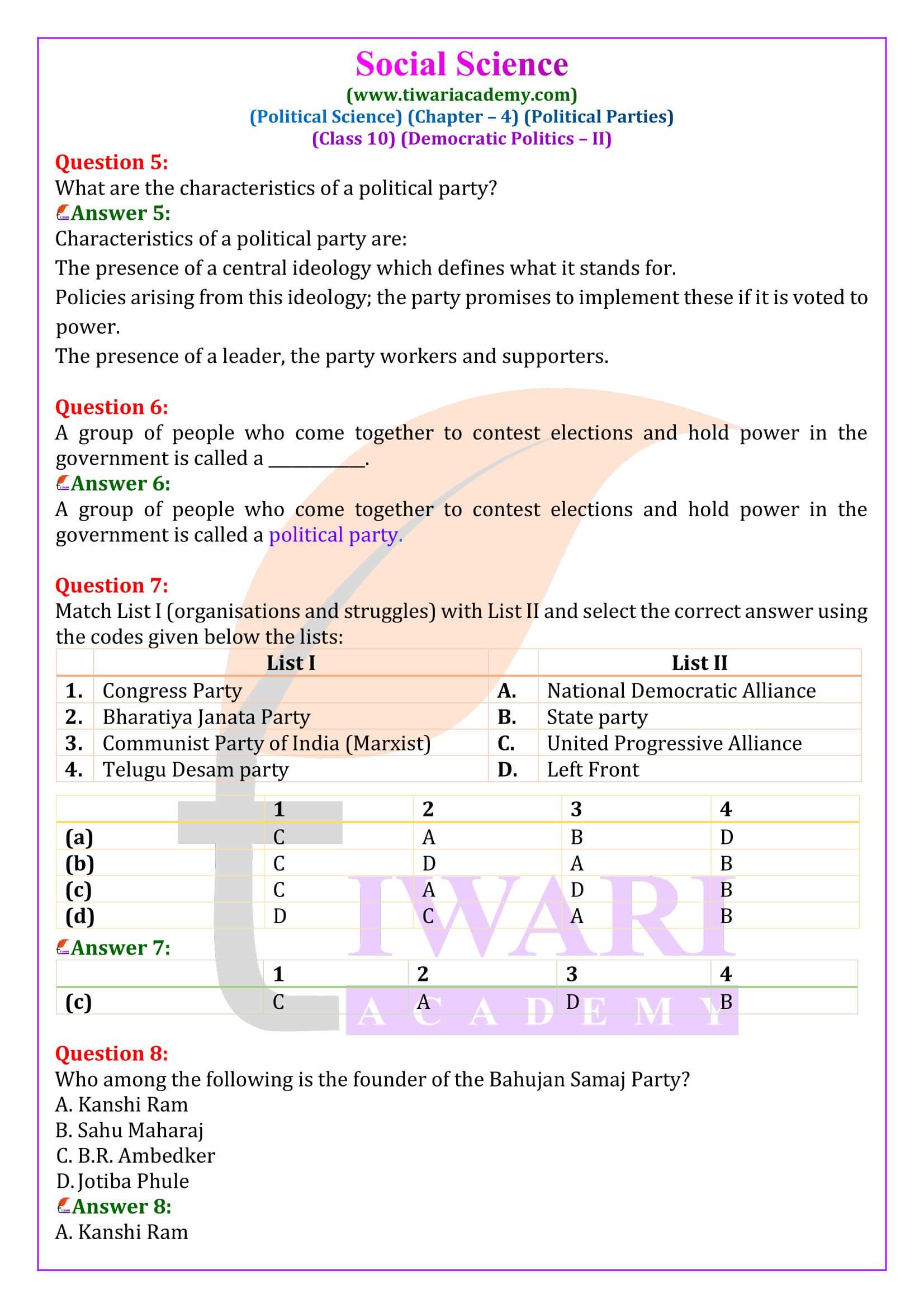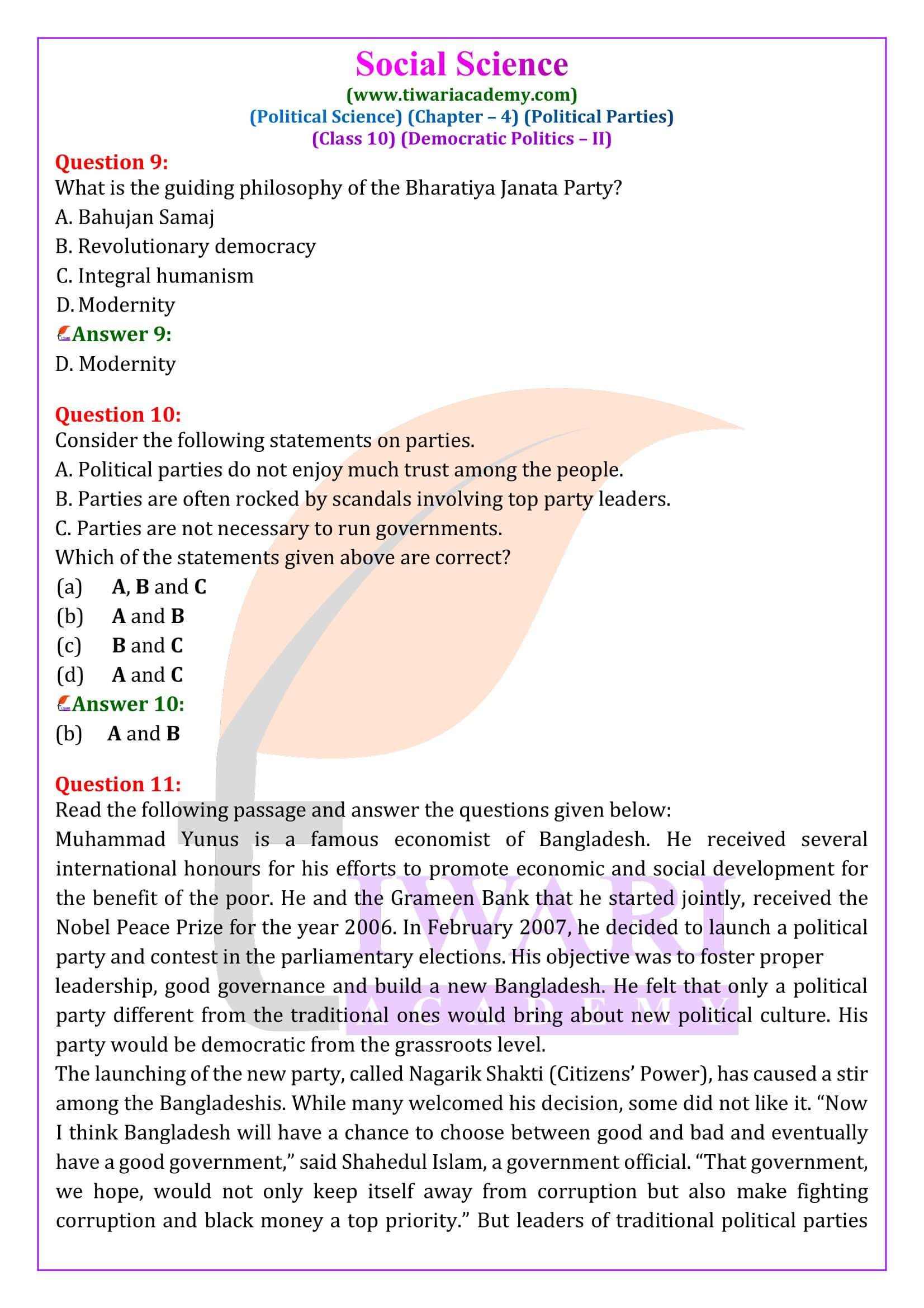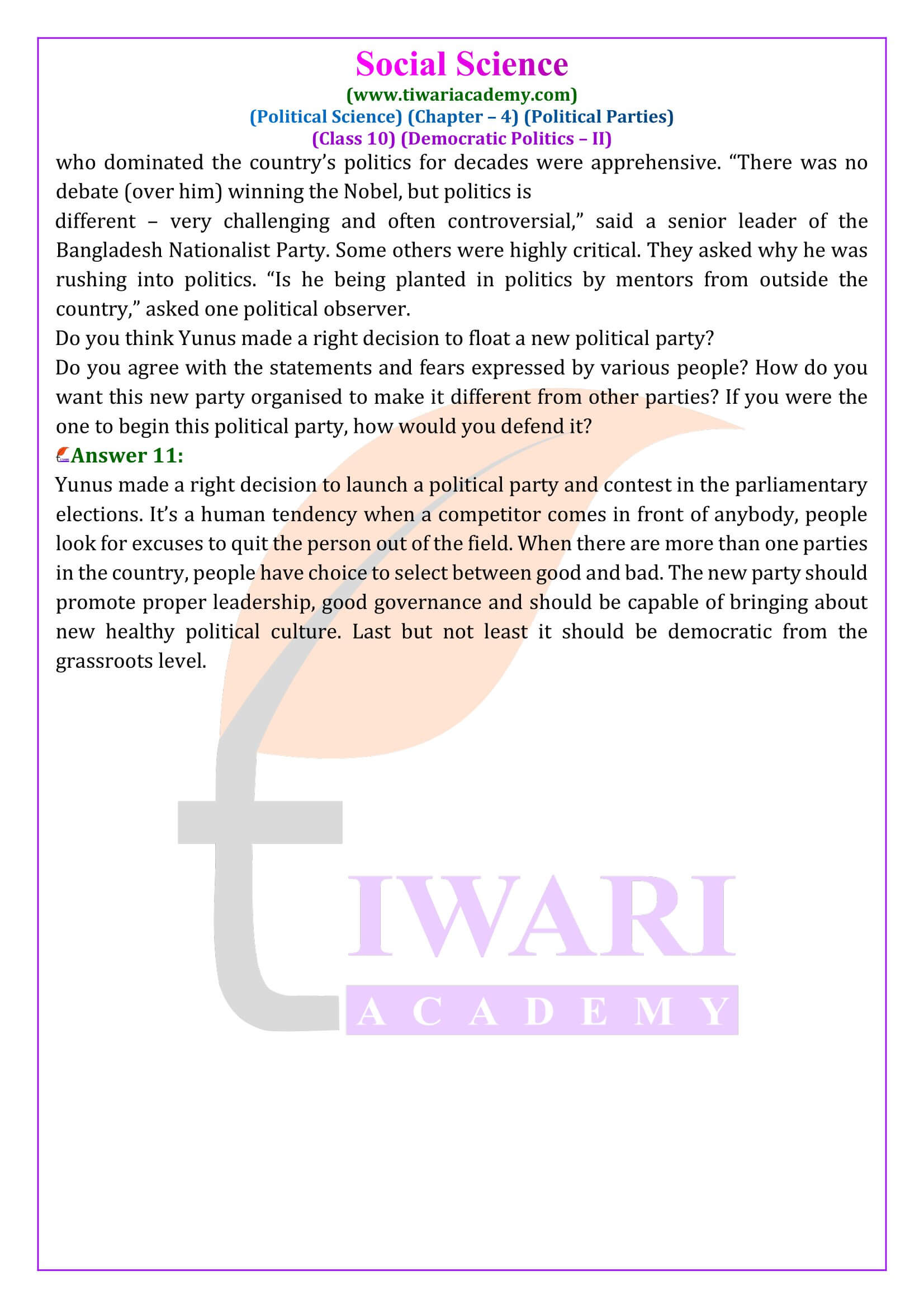NCERT Solutions for Class 10 Civics Chapter 4 (Political Science Chapter 4) Political Parties in English and Hindi Medium for academic session 2025-26 based on new CBSE Curriculum and latest NCERT Books. Download Study material and notes for the preparation of Board Exams. If you are interested in offline study, download solutions in PDF format or download offline Apps free from Play Store or App Store.
NCERT Solutions for Class 10 Civics Chapter 4
NCERT Solutions for Class 10 Civics Chapter 4
| Class: 10 | Political Science |
| Subject: | Social Science – Civics |
| Chapter 4: | Political Parties |
| Academic Session: | 2025-26 |
NCERT Solutions for Class 10 Civics Chapter 4
NCERT Solutions for Class 10 Civics Chapter 4 to download for new academic session 2025-26. Download NCERT Books and Offline-Online Apps for IOS & Android for new session based on latest CBSE Syllabus.
Class 10 Civicis Chapter 4 Extra Questions
Why the need of a party?
a) Every candidate in election will be independent.
b) Cannot make promises to the people about any major policy changes.
c) Even if formed – its utility will remain uncertain.
d) Will be accountable to their constituency – no one will be responsible as to how the country run.
What are the challenges to political parties?
The challenges to political parties are as follows:
Lack of internal democracy within parties
Dynastic succession- an ordinary worker may rise in top in a party people who do not have adequate experience or support came to power – with various close people.
Money and muscle power – Rich people and companies influence on party decisions.
Do not offer meaningful choice to the voters – leaders shift from one party to another.
Not much difference in their policies.
What are the merits of a multi-party system?
More than two parties have a reasonable chance of coming to power either on their own strength or in alliance with others.
This system allows a variety of interests and opinions to enjoy political representation.
In India we have multi-party system and the coalition govt. for last 15 years which benefits all sections of the population.
How can an ordinary citizen contribute in reforming the political parties?
Ordinary citizens can put pressure on political parties through petitions, publicity and agitations.
Pressure groups and movements and the media can play an important role in it.
Educated people should join the political parties because the quality of democracy depends on the degree of public participation.
It is difficult to reform politics without taking part in it and simply criticizing it from outside.
Characteristics of Political Party
Members do agree on some policies and programmers for the society for collective good.
They persuade people why their policies are better.
Thus implement it by winning popular support elections.
They involve partisanship.
It reflects fundamental political division in a society.
Role of Opposition Party
Constructive criticism of government.
Restriction of arbitrariness of ruling party.
Safeguard, liberty and rights of the people.
Well prepared to form government.
Expression of public opinion.
Functions of political parties
a) Parties contest elections.
b) Parties put forward different policies and programmers and voters choose from them – A govt. puts its policies based on the line taken by ruling party.
c) Makes laws for the country – abide to the leader of the party.
d) Parties form and run govt.
e) Opposition parties –voice their views and criticize the govt. for its failures.
f) Parties shape public opinion (from pressure group, organization).
g) They provide people access to govt. Machinery and welfare schemes
Important Questions on Class 10 Civics Chapter 4
State the various functions political parties perform in a democracy.
Functions performed by political parties in a democracy: Group together a large number of similar opinions, thereby providing a direction in which policies can be formulated. Contest elections, providing the voters a choice between different policies. Winning party forms and runs the government. Losing parties form the opposition, and keep a check on the working of the government. Play a decisive role in making laws, especially by debating them in the legislature. Shape public opinion by raising and highlighting issues. Provide people a way to access government machinery and welfare schemes.
Suggest some reforms to strengthen parties so that they perform their functions well?
Some reforms which could strengthen political parties are: A law should be established to regulate the internal affairs of parties, thereby making them more transparent. Women should be given at least one-third tickets. The state should fund election campaigns, thereby eliminating lobbying groups and unfair competition.
What are the various challenges faced by political parties?
Various challenges faced by political parties: Lack of internal democracy: This is caused by the concentration of power in the hands of a few leaders. As a result, positions at the top are reserved for the leaders’ relatives (dynastic succession) or people close to them. Increased dependence on money and muscle power: This causes the party policies to be moulded by groups which supply these to the party. Failure to provide a meaningful choice to the voters: This is because of the decline in fundamental, ideological differences among parties in most parts of the world.
What is a political party?
A political party is a group of people who follow an ideology and thus come together to contest elections and hold power in the government.
Fill in the blank: A group of people who come together to contest elections and hold power in the government is called a ____________.
A group of people who come together to contest elections and hold power in the government is called a political party.
What are the characteristics of a political party?
Characteristics of a political party are: The presence of a central ideology which defines what it stands for. Policies arising from this ideology; the party promises to implement these if it is voted to power. The presence of a leader, the party workers and supporters.





